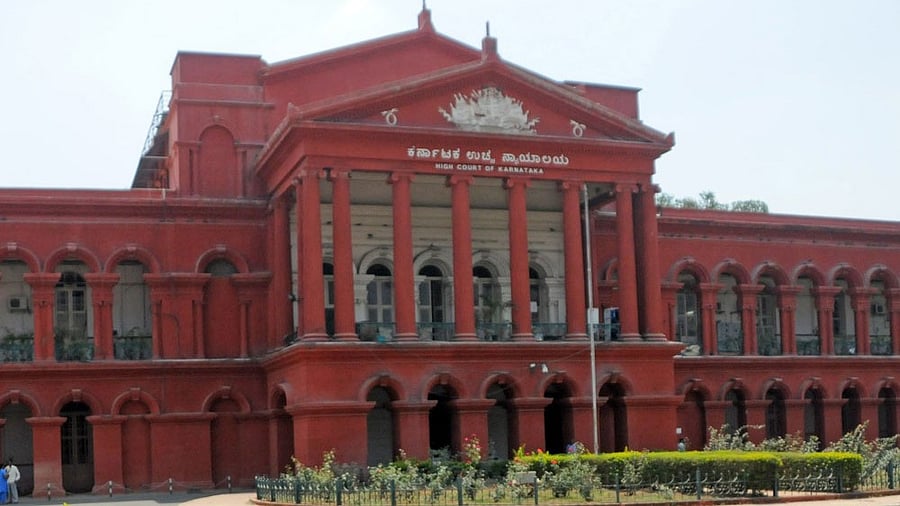
Karnataka High Court
DH Photo
Bengaluru: The Karnataka High Court on Wednesday asked the state government how it plans to justify the Karnataka Religious Structures (Protection) Act, 2021 despite the Supreme Court order on the issue of illegal religious structures in public places. A division bench comprising Chief Justice NV Anjaria and Justice MI Arun was hearing a PIL challenging the constitutional validity of the Act.
“The issue involved in this public interest petition is of seminal importance and of far reaching dimensions in the operation of constitutional law and the position of legislature to legislate vis-a-vis orders of the Apex Court which are the law of the land to be invariably obeyed by all, including the legislative bodies,” the bench said.
The PIL was filed in 2023 by one D Keshavamurthy, a resident of Bengaluru city. The advocate for the petitioner informed the court that the state government has not yet filed its response to the petition even though the legislation is contrary to the orders passed by the apex court and the Karnataka High Court in a pending suo motu PIL.
The advocate highlighted a provision in the statue which provides for protection of religious structures in public places. He said that while disposing of the matter, the apex court had directed all the High Courts to register suo motu petitions to monitor the implementation of its orders.
The Apex Court had stated that all religious structures in public places that have come up after September 2019 will have to be either relocated or demolished.
During the hearing, Justice Arun asked, “On one hand you make legislation being made against superstitious beliefs and on the other hand you have this legislation. How do you reconcile both?”
As the government advocate sought time, the court granted time to file a response by February 25. “Before the court proceeds in the subject matter, since it was noticed that the state has still not filed any response although the petition is of the year 2023, the court deems it proper to afford an opportunity to the state to file a reply. Such reply shall be filed within 15 days, looking at the importance of the subject matter and the directions of the Supreme Court,” the bench said.